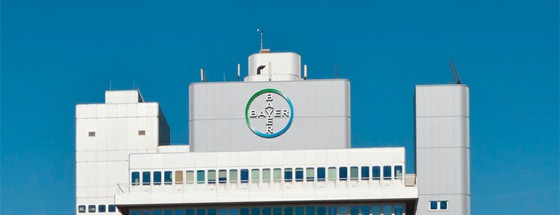
Bayer has failed to block an Indian court ruling that effectively overturned patent protection for its cancer drug Nexavar (sorefinib).
The Intellectual Property Appellate Board of Chennai upheld the compulsory licence that was granted to Indian firm Natco Pharma by the Indian Patent Controller earlier this year.
This licence, the first of its kind to be granted in India, allowed Natco Pharma to sell its version of the drug after ruling that Bayer had not made Nexavar available to the public at a “reasonable affordable price”.
The Board dismissed Bayer’s request for a stay order against the compulsory licence, but the pharma company said it had not yet exhausted its legal options.
“The stay petition is dismissed but the main matter is pending,” a spokesman for Bayer India told Reuters.
The final judgement in the case is expected to take a few more weeks and the spokesman said Bayer would rigorously continue to defend its intellectual property rights.
Bayer’s $5,500 per month price tag for Nexavar will be hugely undercut by Natco Pharma, which will sell its generic version of the liver and kidney cancer drug at $175 per month, paying Bayer a six per cent royalty on its sales.
The appeal court decision was welcomed by Médecins Sans Frontières (MSF), whose Access Campaign India coordinator Leena Menghaney said it “once again affirms that governments can and should act in the interest of public health to bring the price of patented medicines down”.
MSF noted that India’s first compulsory licence could be a watershed for affordable access to patented medicines, potentially opening the way for other life-saving drugs.
“The high prices caused by patents in India are a growing problem that needs to be grappled with: one year’s treatment costs over $1,700 for one of the newer HIV medicines we use in our project in Mumbai, and will be needed across the developing world,” Menghaney said. “This price needs to come down, and we hope that the routine use of compulsory licensing may be one way of making this happen.”
Hyderabad-based Natco, for one, already has its sights set on a number of other products it wants to be compulsorily licensed.
CEO Rajeev Nannapaneni told Live Mint in July that “there are certain products which are eligible for compulsory licensing”, but refused to be drawn on what they were.
There is renewed pharma attention on India’s complex patent system of late. Novartis’ six-year challenge against India’s patent law, focused on its cancer drug Glivec (imatinib), headed last week to the Supreme Court.
Meanwhile, another court room battle, this time between Roche and Cipla over patent protection to cancer drug Tarceva (erlotinib), ended in disappointment for the Swiss pharma company last week.




